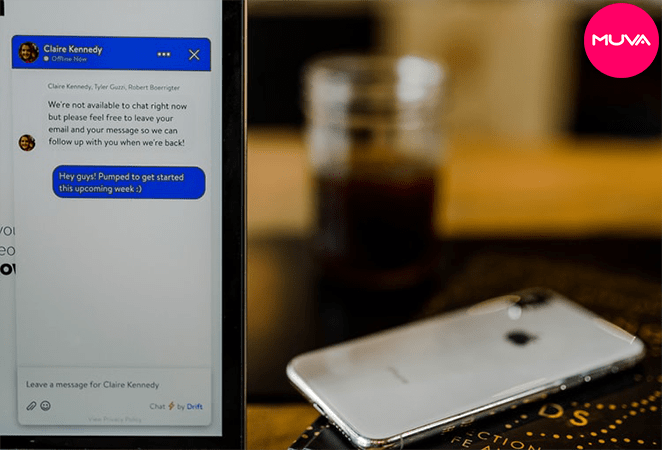Bulk SMS is a service that many app owners do not think about until the last minute. The greatest concern is always the number of downloads. When thousands of people download an app, the owner relaxes and assumes all is well.
The expectation is that the engagement rate will increase with each new download. Here is the reality. Downloads do not lead to engagement. You must give users reasons to open your app every day where possible, and that’s where bulk SMS providers in Kenya come in.
Two ways to prompt users to open your app are through push notifications and SMS. The effectiveness of these methods of communication is the subject of this discussion. Let us start with the definitions.
Definitions of Push Notifications and SMS
Push notifications are messages that an app sends from its server to the user’s interface. The user views notifications on the mobile device or desktop depending on the settings. Some apps allow users to choose the type of notifications that an app sends to their interface.
Apple was the first company to introduce the service in 2009 before Google introduced its service the following year. Since then, companies have been adopting this form of communication for their solutions. The trend has been introduced in mobile app development as well.
SMS stands for Short Message Service. Text messages have existed throughout the history of mobile phones. However, their popularity increased in the 1990s when companies adopted the service for commercial activities.
Bulk SMS in Kenya is a popular service. It has attracted many providers because of the increasing demand. As mobile apps and e-commerce platforms become popular, entrepreneurs realize the need to invest in the service.
Mobile Engagement through Push Notifications
Every method of user engagement has its pros and cons. Push notifications offer the option of combining text, videos, and images. The notifications often play a sound and show an icon to alert the user.
You can play around with notifications by including interactive buttons that allow users to respond to the notifications. Push notifications are associated with a higher level of user engagement. They do not just remind the user of the app but prompt a specific action.
By clicking on the notification, the user may go directly to the app when a link is provided. Another advantage is that users can opt out of the notification. Users can either block all notifications from the settings or choose the type of notifications to receive.
The downside of push notifications is that they can be disruptive and annoying. Think of apps that are highly interactive such as social apps. Notifications for every time a connection takes action are too much for some users.
Users end up either blocking all notifications or logging out of an app. Such actions mean a loss of opportunities for app owners to convert. Hence, the timing and content of notifications must be right.
Another disadvantage is that push notifications require an internet connection to be delivered and viewed. In addition, users must have the app installed and notifications enabled to receive push notifications. If users disable notifications, you’ll lose this communication channel.
However, one advantage of push notifications over SMS is that they are free and unlimited. As a mobile app owner, you can send as many notifications as necessary at no cost. Some companies that offer Bulk SMS Kenya charge after a specific number of messages.
Push notifications are suitable for apps whose functions require constant reminders. For instance, fitness apps need to send constant reminders to users to work out. Users sign up for social apps to engage with other users so push notifications are less disruptive.

Travel apps such as airline apps need to send notifications to users to remind them of scheduled flights. In short, if you need to remind users of important activities or actions, push notifications are recommended.
For push notifications to work as intended, avoid sending them in the morning. Nobody wants to wake up to the sound of a notification. Avoid sticky notifications and ensure that the message is relevant.
You do not need to send a notification every day unless your app requires that. For instance, working out or adopting a new diet requires daily reminders. Make the messages relevant, useful, and engaging at all times.
Engagement through SMS
The alternative to push notifications is SMS. Some apps require that you use both bulk SMS and push notifications. Why send text messages when you can send notifications? One, you may need to confirm the identity of users.
Consider finance apps or delivery services that require user authentication. The mobile phone number is often part of the verification process. You need to send a message to confirm registration or provide a verification code.
Delivery and transport services require SMS services. Think of users who book a service online and then switch off their data. How do you deliver their orders without an alternative communication channel?
Transport companies will often send a message to both the client and courier to confirm an order and delivery time. You can also send alerts or warnings to clients via SMS. For instance, you will find banks sending SMS alerts to all clients of new fraudulent activities.
Healthcare services use SMS to reach a wider market with warnings or alerts of outbreaks or new services. Text messages are a great way of introducing discounts or offers to clients. Clients are prompted to log into the apps and view the products or services on offer.
The downside of SMS is that they may attract an additional cost. Bulk SMS in Kenya is free for a limited number of messages. Sometimes you may need users to reply to a message, which attracts a cost for them as well.
Another downside of using SMS is that some users consider them spam. It is difficult to personalize every SMS. Hence, companies end up sending the same message to all clients. Sometimes the same message will appear severally in a day and users dismiss it as spam.
Conclusion
Choosing the right engagement tool is now easy with this information. The first question to ask before contacting bulk SMS providers in Kenya or developers is, does my app need this service? Will it improve communication with clients or annoy them? Consider the type of app you have developed and the kind of alerts that the user needs.
In addition, think about the frequency and timing of both SMS and push notifications to maximize open rates. Remember that bulk SMS services in Kenya may attract a cost. There is no harm in exploring both tools at the same time to optimize user engagement.





